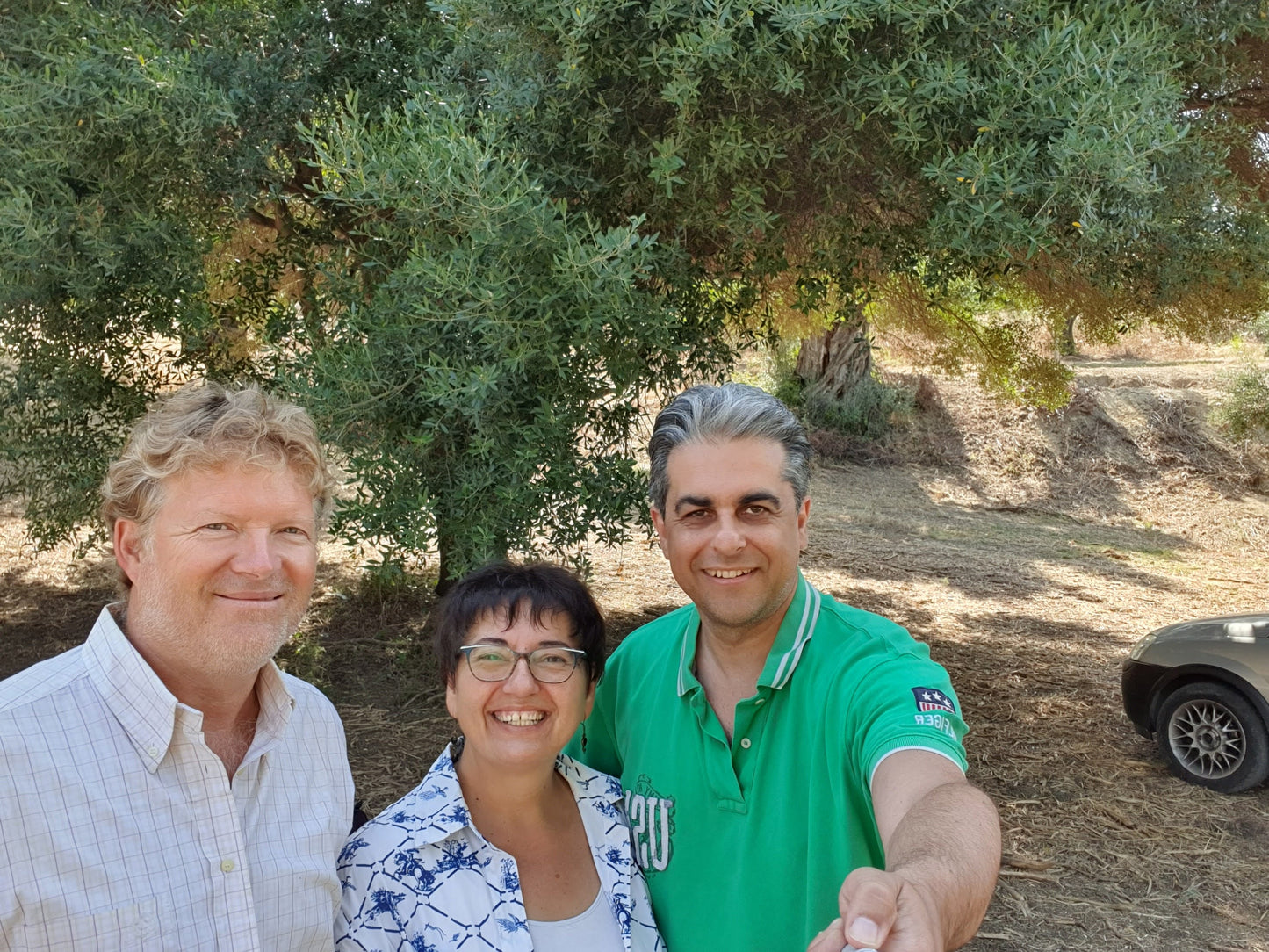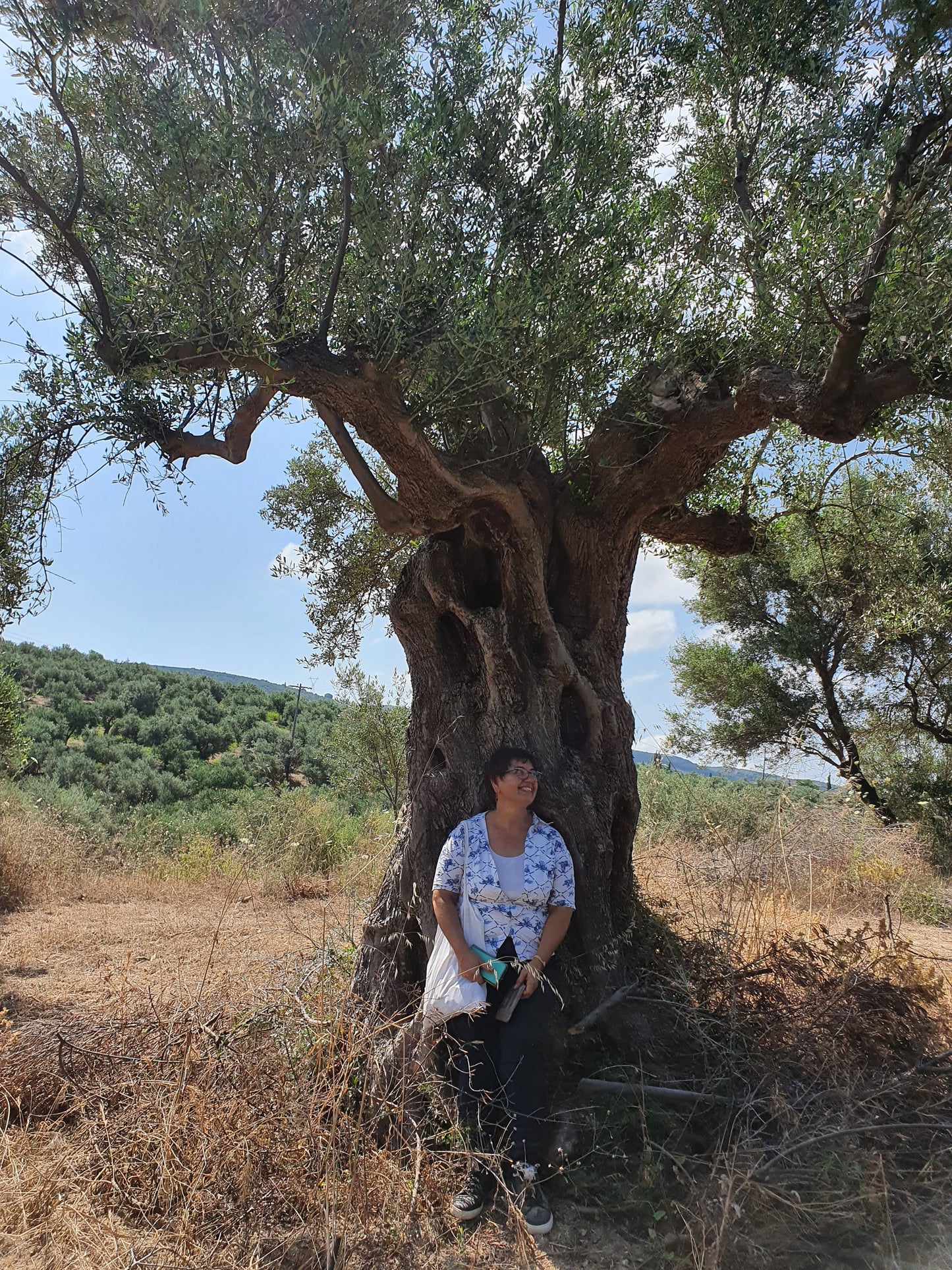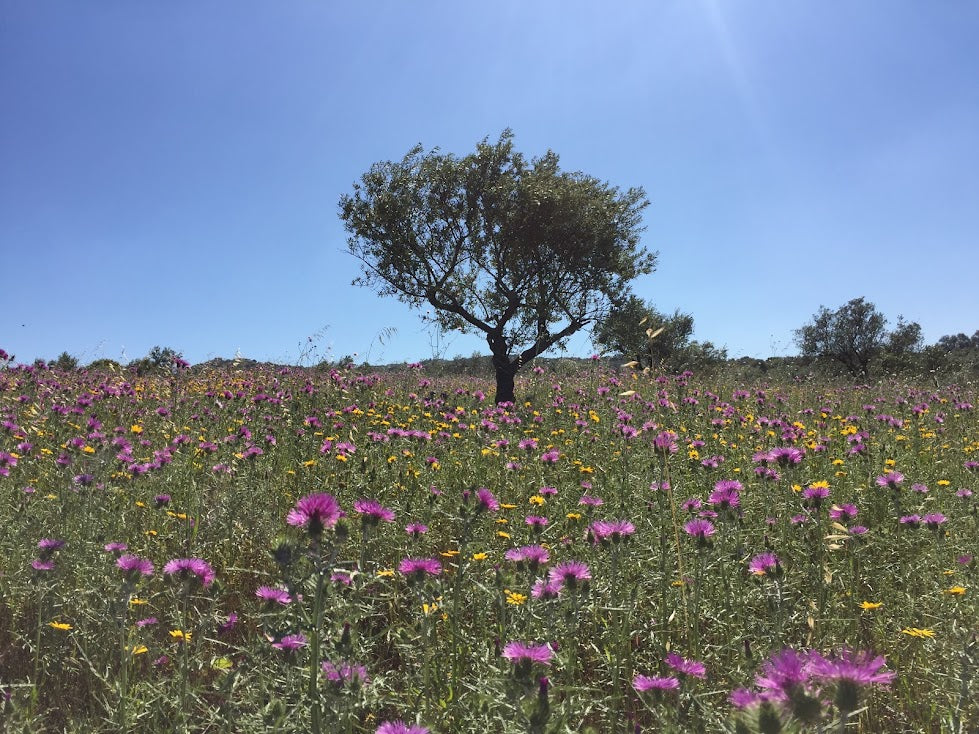Our supplier for our organic olive oil from Greece is the Kotrotsis family from the small village of Korifasio in the Kalamata region. The Kalamata region in southwest Greece is the largest olive-growing region in the country and the second largest in the EU after Spanish Andalusia. Approximately 30 km from the capital Kalamata, just above the beautiful coast, lies the village of Korisfasio, a typical olive village in the region. Almost the entire population there makes its living from or with olive cultivation. Stylianos Kotrotsis is from there and inherited the fields from his ancestors and purchased new ones. Due to the slightly higher location, his fields offer a wonderful view of the coast and the luxury holiday home of Costa Navarro. Later, he and his wife invested in the mill, giving them control over the entire processing process. The harvest there usually takes place from November to the end of January and then continues from early morning until late at night – naturally, continuously for months, excluding weekends and holidays. You can only breathe a sigh of relief when it rains occasionally and you can't harvest. The region's good fortune, and probably the reason for the large harvest every year, is the frequent winter rainfall. I myself witnessed days of heavy rainfall there, the likes of which I rarely see, even in Germany.
While there are several mills in the region, many farmers in the area have a very close and trusting relationship with the Kotrotsis family. The region's farmers bring their olives there for pressing. Instead of money, the family keeps a portion of the oil as a fee. Therefore, trust is crucial for their livelihood, as many mills secretly keep more oil than they are entitled to or secretly exchange goods. The mill and all of the family's fields, without exception, are certified organic.
To ensure the right yield at the end of the year, the fields must be worked continuously throughout the year. This includes plowing, pruning, fertilizing, and, in the summer, combating fruit flies. The fruit fly bites the olives, injuring them, and the oil leaks out. The more severe the infestation, the poorer the quality. This is where the biggest disadvantage of organic farming comes into play: traditional insecticides are significantly more effective at combating fruit flies, whereas organic farming requires fungus-based products. Stylianos does all the work himself. Sometimes one of his sons helps him.
















